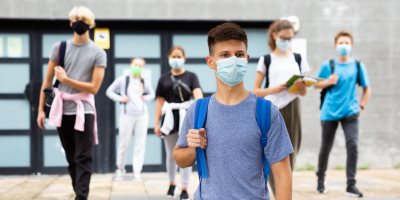
Project Lead
Golo Henseke
Team Members
Andy Green
Francis Green
Ingrid Schoon
Rachel Wilde
Hans Dietrich
Rubab Arim
Aisling Murray
Emer Smyth
Description
This research project will address the UK’s need for robust evidence on the pandemic’s consequences for youth employment, learning and wellbeing.
The project will address social inequalities in the pandemic’s impact, and assess varying prospects for recovery among places, socio-economic groups and jobs.
It will also examine potential mechanisms to avoid long-term ‘scarring’ effects for careers and lifetime earnings.
Background
Young people’s employment prospects are hit hard by the pandemic’s unfolding economic consequences. Workers aged 16-24 were more than twice as likely to work in ‘lockdown’ industries, and about three times more likely to be in potentially precarious employment than workers above 25.
Exiting research shows that up to a third of 18-24-year-olds have already lost their job or have been furloughed. Workers under 30 have also seen their hours cut harder and express higher job insecurity than prime-aged workers.
Prolonged and repeated unemployment and situations of not in education, employment, or training (NEET) can ‘scar’ youth’s future career prospects and earnings. But education, work-related skills training, future planning and active employment support can help to insulate against scaring effects.
This research will illuminate what works to help young people to maintain employment, get back to work, and develop productive skills.
Aims:
Our primary objectives are:
- to develop robust and timely intelligence on youth economic activity, psychosocial wellbeing, skills development and career outlooks
- to provide new evidence on potential pathways to mitigate the long-term scarring effects from the pandemic on youth’s careers and lifetime earnings through skill development and career readiness
- to influence public debate through regular publications activities across a range of communications platform to attract media interest
- to develop impact with stakeholders and policymakers to inform and influence policy and practice.
Methodology
Using existing and new data, we will:
- examine successful transitions from school into jobs and post-18 education
- investigate the relationship of future optimism and career planning with youth wellbeing
- analyse the consequences of the pandemic on internship provision and training
- track local employment support provision and careers education initiatives.
To contextualise British trends and to explore the potential for policy programmes, we will compare changes in youths’ job market transitions and career planning in the UK, with detailed findings for Germany and broader trends in Canada and Ireland.
To address our research questions, we will commission a survey of young adults in Britain, conduct interviews with local labour market stakeholders and young people, and analyse a range of secondary quantitative data sources.
Funders: Economic and Social Research Council (ESRC), grant number ES/V01577X/1
Funding information: The project will run for 18 months from 5 November 2020 until 4 May 2022

Dr Golo Henseke
Project Leader
Professor Andy Green
Co-Investigators
Professor Francis Green
Co-Investigators
Professor Ingrid Schoon
Co-Investigators
Dr Rachel Wilde
Co-Investigators
Dr Hans Dietrich
Co-Investigators
Dr Rubab Arim
Co-Investigators
Dr Aisling Murray
Co-Investigators
Professor Emer Smyth
Co-Investigators
| Full Name | Role | Uni/dept | |
| Dr Golo Henseke | Project Leader | UCL Institute of Education |

















